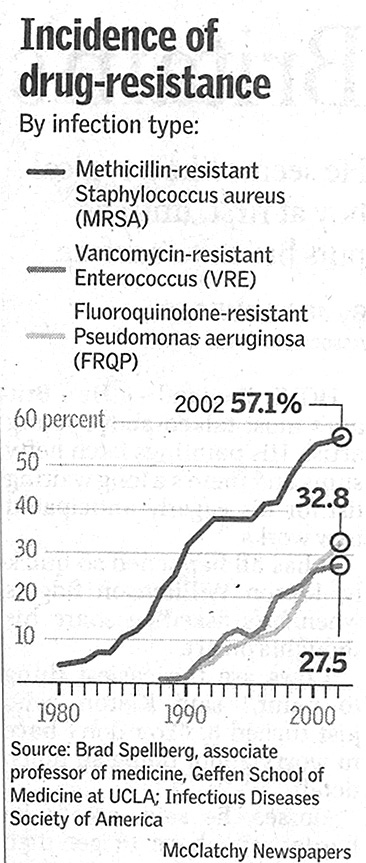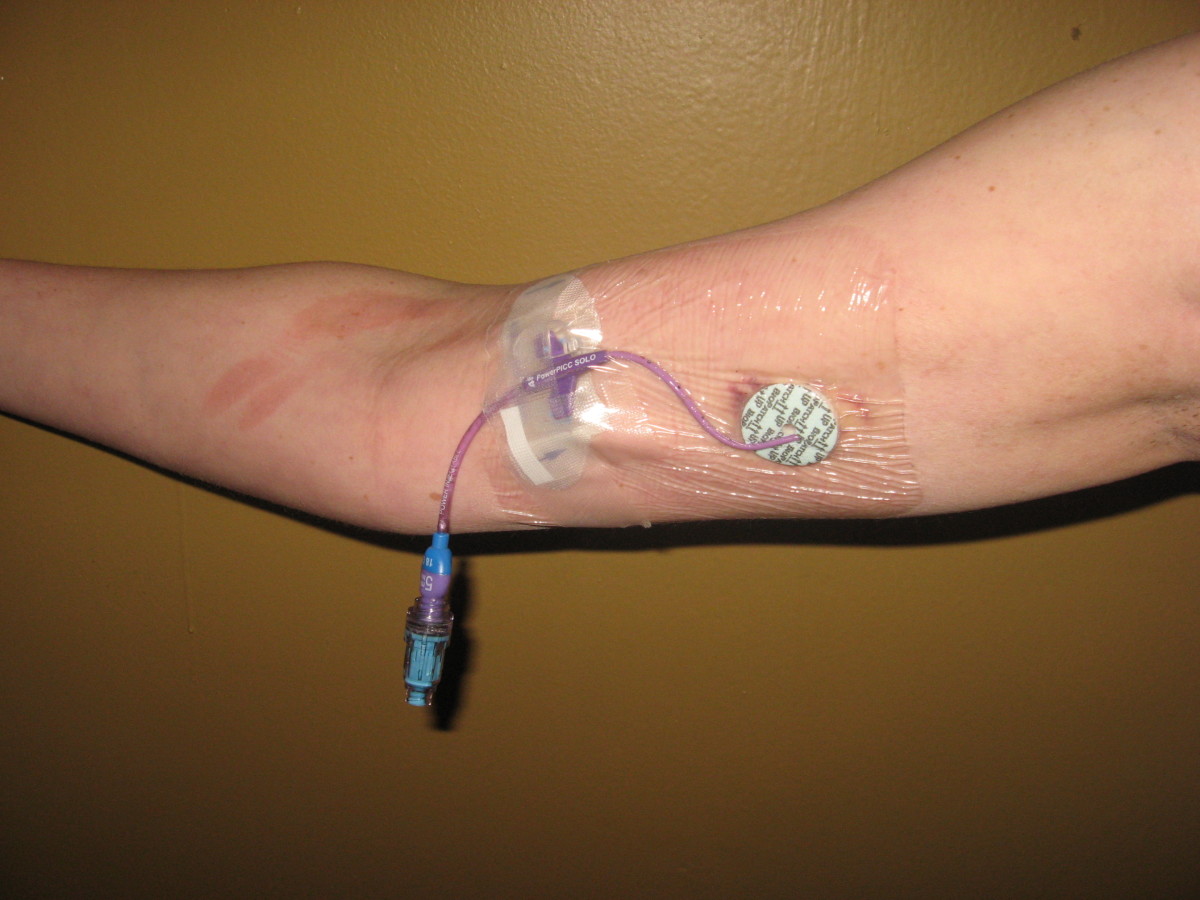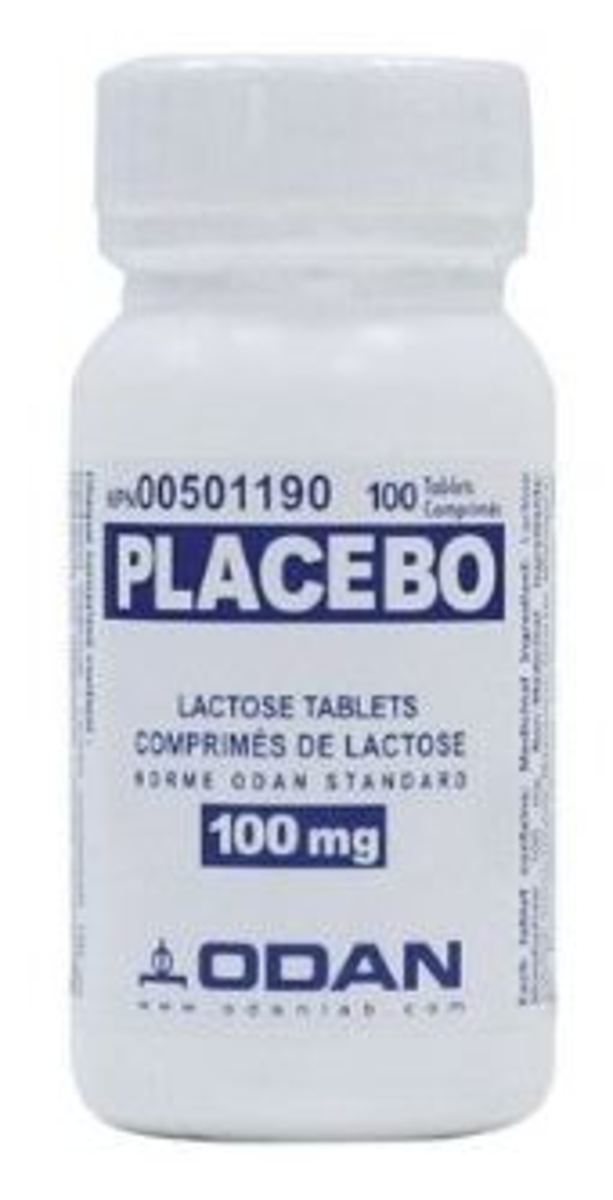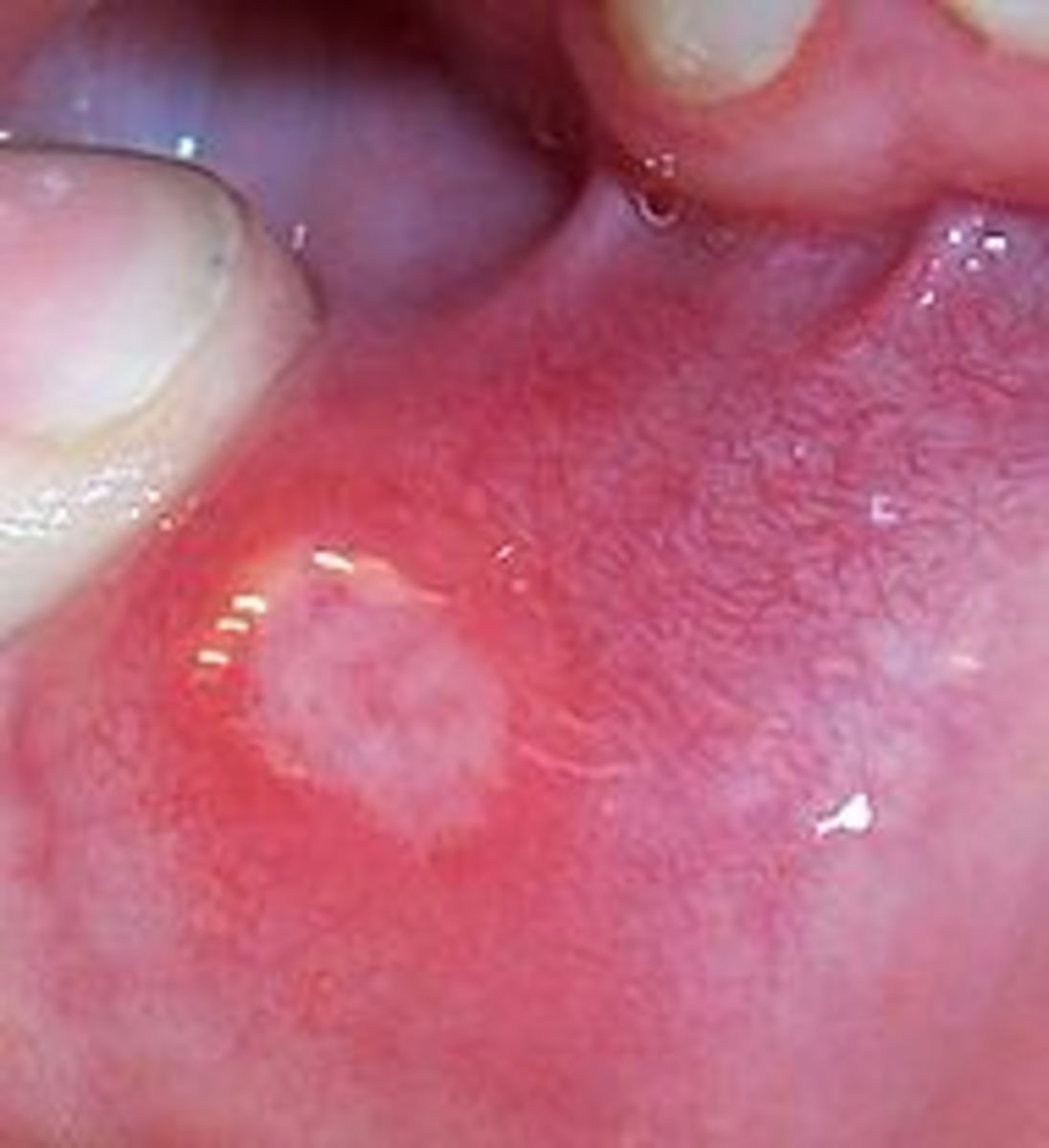MRSA - Serious Bacterial Infection
Super Bug

MRSA Infection Becoming More Prevalent
Methicillin Resistant Staph Aureus, better known as MRSA, is a bacterial infection that is very contagious and very serious. The initial MRSA antibiotics used to treat these bacteria are no longer working in many cases, as the bacteria have become more resistant.
These problems are not only related to needed antibiotics for MRSA, but also for Klebsiella pneumoniae and other bacteria. This is a serious problem as 90,000 of annual deaths in hospitals happen due to infection, with 70% being caused by bacteria resistant to at least one drug.
These types of infections are typically picked up when you are hospitalized, as that is where bugs live despite the cleaning effort of the staff, particularly with bleach which is one of the few products that actually kill these types of bacteria. Infection control is extremely important in hospitals.
The other aspect is these bugs attack when you are at your weakest point, for instance, after a major surgery, of if you have a disease such as HIV, or are immune suppressed due to chemotherapy for cancer or dozens of autoimmune diseases being treated with chemotherapy.
It is now possible to get MRSA almost anywhere. You have to be very careful with sports equipment if you have a child that plays on a team. Also, avoid anyone that you know is ill until they have completely recovered.
Drug Resistance Chart

Too Many Antibiotics Prescribed
We are really in this crisis more so because of the overabundance of antibiotics prescribed when patients demand them for illnesses that can’t be cured with antibiotics, such as viruses, coughs and colds. This has triggered bacteria to evolve and become resistant to the antibiotics.
Bacteria can evolve, or gain resistance in two ways:
- By mutation
- By using a built in feature to sway DNA (known as horizontal gene transfer) –bacteria share gene resistance
Over the Counter Antibiotics
London has done something interesting that at first glance might seem to increase the problem. A person can get over the counter Azithromycin for a positive Chlamydia test by sending in a mail order culture.
You might think that over the counter would increase antibiotic abuse, however, the person has to have a positive result to buy the medication. So, there is no doctor visit involved, and no one is receiving the drug that isn’t positive with the bacteria.
MRSA Infection Myths and Truths
Drug Companies vs FDA
The other aspect of this problem is drug companies are abandoning the antibiotic business stating the high development costs, the low return on their investments and due to the decade of being in a stalemate with the Food and Drug Administration (FDA).
The very scary part of this problem is revealed in a survey conducted by UCLA which concluded the FDA’s approval of new antibiotic agents developed over the past 20 years has decreased by 56%. It seems some of our best top researchers are no longer looking for these important answers. The result of this has been that Eli Lilly, Abbott Labs and the former Squibb have pulled out of antibiotic research.
Doctors fear we will soon be defenseless in treating these bacterial diseases. The FDA wants the drug companies to run much more stringent clinical trials. There have been some approved antibiotics that have not worked out well, such as the antibiotic Ketek (a medication used to treat pneumonia but causes stomach and liver problems more than expected). The doctor on the study actually went to jail for falsifying data in the study.
The drug companies still state that the new rules will make it so difficult and expensive to gain approval for new antibiotics that only a few remaining companies will continue this work. Over the past two years there have been 9 meetings between the FDA and the pharmaceutical industry scientists and physicians without agreeing on anything besides the desperate need for new drugs.
For many years antibiotics were approved based in clinical trials that didn’t have to show the drug was any better than an old one. It just had to fall into an acceptable margin of efficacy, which might mean it was not an improvement but could still be considered a success. The FDA wants the margins for these new drugs to be scientifically justified, which sounds very reasonable. It is a complex situation because if the definition of success is too loose you might not be measuring efficacy at all.
The newest proposal by the FDA proposes that antibiotics that are meant to treat non-lethal infections which often resolve on their own, such as sinusitis, ear infections and bronchitis be tested under different methods, using double blind studies that involve placebos. However, I wouldn't particularly want to be the one receiving the placebo. Physicians are to use new antibiotics sparingly to prevent further evolution of bacteria.
Hospitalized Patient

MRSA with No Effective Treatment
If we don’t have effective antibiotic the whole medical system doesn’t work. As an example, I will use my mother’s situation. She had a severely fractured ankle many years ago that started giving away, and the orthopedic doctor said he should operate to actually replace the ankle.
After the surgery he stated that procedure would have been too risky for her, and he just used screws, etc. to hold the ankle together which should have still given her a decent result. However, the bandage placed over the lower leg and ankle had a cast type back with ace wrap used to wrap the leg and foot. The ace wrap moved around and ultimately opened up both of the suture lines.
She developed MRSA in her incision, then in the bone and the tissue wasted away, despite receiving every known antibiotic. She was in and out of the hospitals, nursing homes plus sometimes stayed with me for a whole year before we finally gave up and let them amputate below the knee. The incision was so open before surgery I could see the bone of her foot. This was the worse year of her and my life.
However, the amputation was finally the beginning of her recovery, and she moved in with my husband and me. She has learned to walk with a prosthesis quite well, not that it has been simple, and also uses a cane for extra assurance, which is pretty good for a lady of 86 years old. She is not a diabetic, but somebody didn’t wash their hands or do a clean dressing change for her to have received that infection.
Summary
I would like to end this hub with how important it is to protect yourself and your family from Methicillin Reasistent Staph Aureus.
Wash your hands every time you come home from anywhere. Use clean wipes on the grocery cart as they are loaded with germs. Make sure your children wash their hands when they arrive home from school or the playground.
If you are a patient in the hospital, do not let anyone touch you if you don’t see them clean their hands first, and that includes the doctor. Remember you are paying them.
Be an advocate for good health. Wash fresh vegetable and fruit thoroughly beside the fact they may have dirt, or pest control products, they has also been handled by other people. Cover your mouth when you sneeze and use a tissue. If you see someone in a store that appears ill, stay away from them. These are all common sense small things that may save your life. Be aware of your surroundings.
The copyright, renewed in 2018, for this article is owned by Pamela Oglesby. Permission to republish this article in print or online must be granted by the author in writing.








